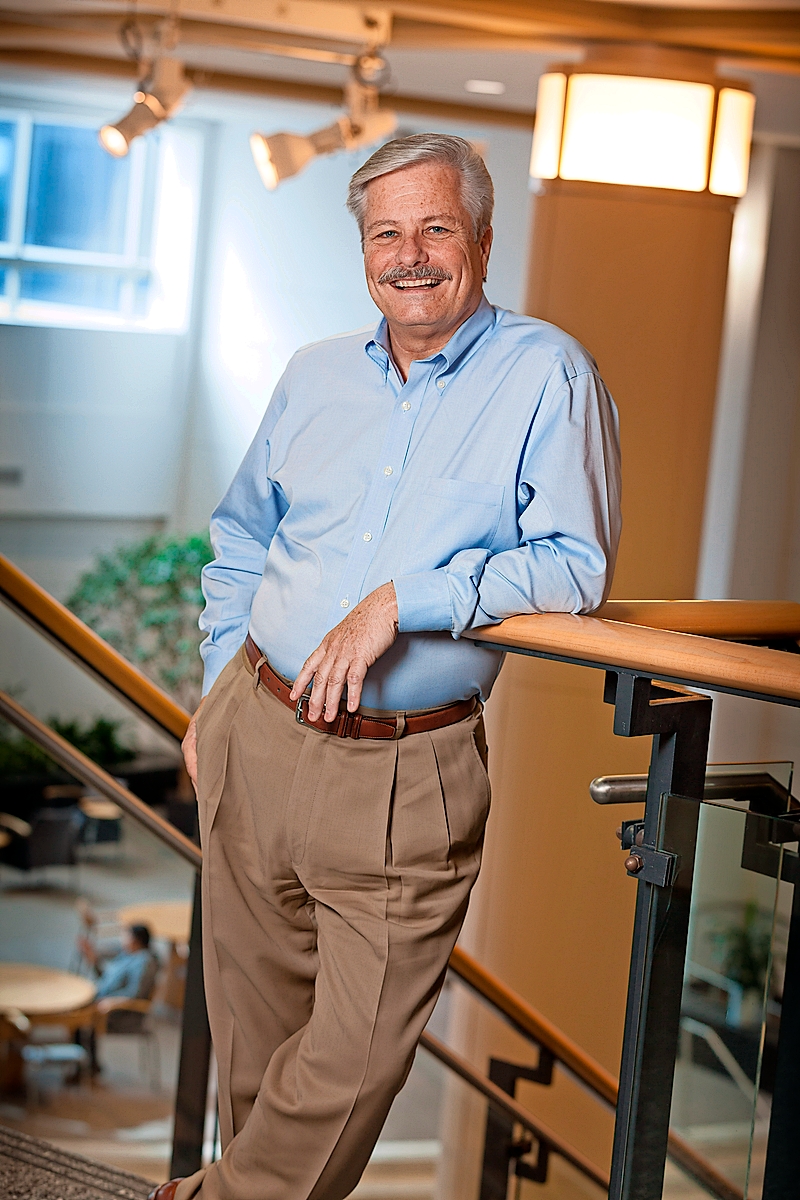Business Profile | Gary Conkright
By Mark Zonca
November 2014 View more Business
 Technology is rapidly changing the healthcare industry and Naperville-based PhysIQ is one company leading the charge. PhysIQ makes wearable devices designed to detect changes in vital health indicators. Naperville Magazine talked with CEO Gary Conkright about PhysIQ’s goal of bringing intelligence to physiology.
Technology is rapidly changing the healthcare industry and Naperville-based PhysIQ is one company leading the charge. PhysIQ makes wearable devices designed to detect changes in vital health indicators. Naperville Magazine talked with CEO Gary Conkright about PhysIQ’s goal of bringing intelligence to physiology.
PhysIQ created technology for wearable devices that monitor vital signs and other health indicators. How did this idea develop?
In 1999, I started a company called SmartSignal, along with the University of Chicago, to commercialize game-changing technology originally developed at Argonne National Laboratory to monitor equipment in nuclear power plants. We developed a software-based product that became the gold standard for monitoring the health of mission-critical industrial assets, including jet engines, electrical power generation plants, and refineries, all over the world. SmartSignal was ultimately acquired by GE.
Before that transaction, I spun out with two other members of the SmartSignal management team to commercialize the same technology to monitor the most important machine of all, the human machine. With the help of medical researchers from The University of Chicago Medical Center and other research hospitals across the country, we have now proven the physIQ business thesis—our machine learning technology works as well with human physiology as it does on jet engines. We recently submitted this evidence to the FDA for clearance as a medical device, and are diligently working with doctors and nurses to demonstrate how they can use our solution to monitor their chronically ill patients living at home, to not only help reduce costs and improve outcomes, but also extend lives and improve quality of life. The U.S. Department of Veteran Affairs recognized the potential of our approach, providing early financial support and pilot testing. We recently expanded this pilot to include four VA hospitals.
The physIQ approach is truly a paradigm shift. Instead of comparing a person’s vital signs, such as heart rate, respiration rate, blood pressure, and blood oxygen level, to population-based norms or averages, physIQ uses our proven machine learning technology to develop a personalized baseline for each patient. That allows us to compare you to you, providing a much higher degree of sensitivity and actionable information. This info provides physicians and their patients the ability to know more and act sooner.
How is this technology changing healthcare and what does it mean for patient care?
The impact of physIQ promises to be profound. In my recent TEDMed talk, I spoke about the next transformation of healthcare being Quantified Medicine 2.0, or the ability to identify subtle yet significant changes in one’s health before the first symptoms appear. What this will enable is a proactive approach to human health, replacing the current reactive care delivery model, which typically deals with medical issues after symptoms become acute in a hospital setting. Some thought leaders in medicine are referring to the current U.S. healthcare system as “sick care” which underscores the need to start thinking about how to stay healthy in the first place. The physIQ approach can enable this in two ways.
For the 10 million people in the U.S. who suffer from chronic illness, the last thing they want to do is spend time in a hospital. Today, thanks to the vital sign data that can be collected with wearable sensors and smartphones, a clinician can closely monitor vital signs while patients can carry on their daily life at home. Rather than caring for the patient in the h ospital after a 911 call, physicians can proactively intervene to help patients continue living at home. Not only is proactive care financially advantageous, it’s better for the patient’s well-being by preventing life threatening emergencies.
The value extends beyond patient care to those who want to improve their health and prevent illness. PhysIQ can give direct feedback on the impact of behaviors to our well-being. With that accurate knowledge, there is a much higher chance we will modify behaviors in positive ways. For example, if we each had a personalized quantitative measure of our health, or a health index, to track the positive impact daily exercise has on that index or, conversely, the negative impact of putting on an extra 10 pounds, many experts believe Americans would choose healthier lifestyles. The same physIQ machine learning approach used by physicians to monitor chronic diseases could provide each of us with a motivational tool to track personal health.
What has been your proudest accomplishment?
I would say that the work at physIQ is the most rewarding. Whenever you start a new business from scratch, I think most entrepreneurs can attest that the personal satisfaction of working with a group of talented and passionate colleagues to bring a new product or innovation to market is their motivation. I’ve been very fortunate to lead a few teams in the past that helped customers improve operations and increase profits, but what we’re doing with physIQ has the potential to significantly improve the lives of those living with chronic illness and positively impact the human condition. Having experienced a family member dealing with a debilitating chronic illness, I’m personally driven to bring physIQ to market as soon as possible.
What inspired you to locate PhysIQ in Naperville?
We’ve lived in Naperville since 1985, and all three of our children have been educated in the 203 school system. Joining me early in physIQ were two other employees from SmartSignal—Matt Pipke and Stephan Wegerich. The I-88 Naperville corridor was equal distance to our three homes. Plus, this area has a talented labor pool and because of the interstate system, we can attract talent from not only Chicago, but most of the suburbs.
Photo by Mike Hudson

